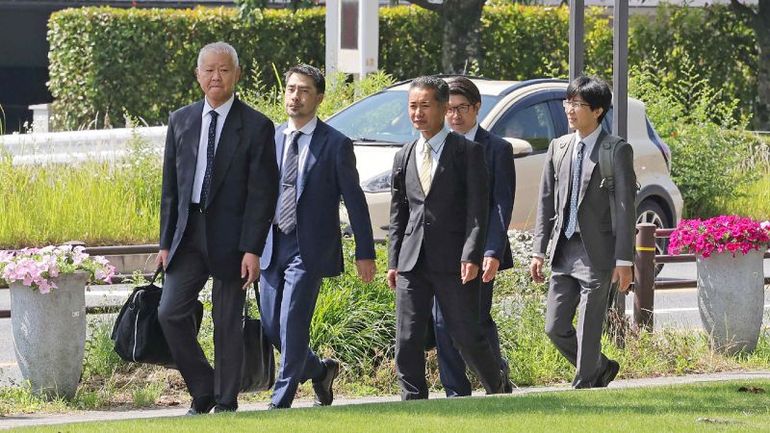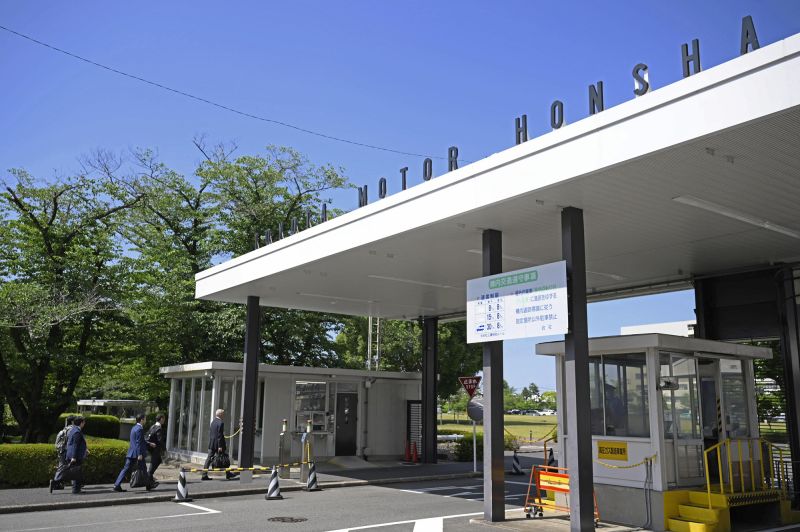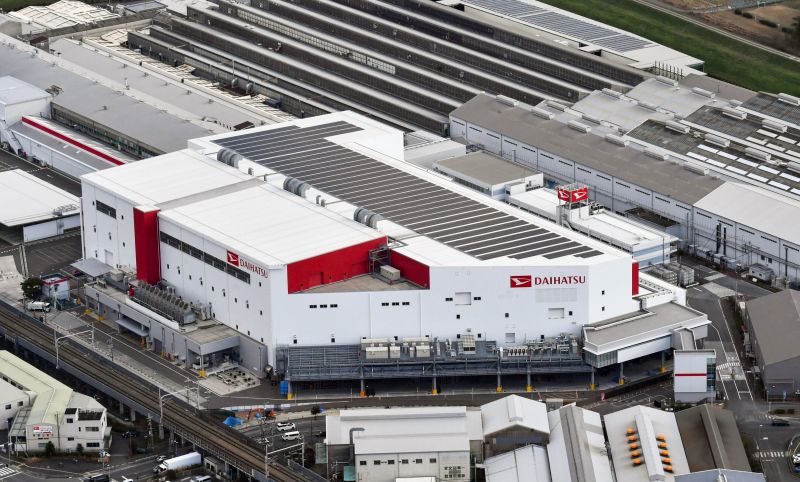
Toyota headquarters under scrutiny by Japanese officials amid safety certification scandal

Toyota headquarters faced a visit from Japanese officials on Tuesday following the escalation of a safety test scandal affecting multiple automakers in the country.
Japanese officials visited Toyota's headquarters on Tuesday in response to a safety test scandal affecting multiple automakers in the country. Inspections at Toyota's offices in central Japan are set to continue over the next few days, according to Japan’s Ministry of Transport. This comes as the world’s largest carmaker by sales faces increasing worries about the certification of certain vehicles.
The ministry found that Toyota, Mazda, Honda, Suzuki, and Yamaha provided inaccurate safety test data when seeking certification for their vehicles. As a result, Toyota, Mazda, and Yamaha were instructed to halt shipments of certain vehicle models, such as the Corolla Fielder and Corolla Axio. Additionally, all five companies were directed to reassess their safety certification procedures.
Toyota announced on Monday that they had conducted a probe which found that at least seven of their models, including some that are no longer in production, were tested using methods that did not meet government standards.
The company stated that they were specifically investigating issues related to pedestrian and occupant protection tests, as well as errors in crash tests. The investigation is still ongoing.
Toyota said it had not violated safety regulations and customers did not need to stop using their cars.
Toyota's headquarters are in central Japan.
Toyota's headquarters are in central Japan.
Kyodo/Reuters
Koji Endo from SBI Securities mentioned that Japan has very strict certification tests compared to other countries. He explained that the safety inspection standards were established back in 1951, making it outdated and challenging for many automakers to comply with.
Endo pointed out that Toyota has conducted hundreds of thousands, if not millions, of tests over the past 15 years. Despite this large number, only three or four tests have raised concerns. This indicates a very low percentage of problematic tests.
Photo taken from a Kyodo News helicopter on Dec. 25, 2023, shows a Daihatsu Motor Co. factory in Oyamazaki in Kyoto Prefecture, western Japan. The small-car unit of Toyota Motor Corp. said the same day it will suspend production at all domestic factories until at least the end of January due to a safety testing scandal. (Photo by Kyodo News via Getty Images)
A photo taken from a Kyodo News helicopter on December 25, 2023, shows a Daihatsu Motor Co. factory in Oyamazaki, Kyoto Prefecture, in western Japan. The small-car unit of Toyota Motor Corp. announced on the same day that it will halt production at all domestic factories until at least the end of January because of a safety testing scandal. (Photo by Kyodo News via Getty Images)
Related article
Toyota-owned automaker halts Japan production after admitting it tampered with safety tests for 30 years
In a press conference on Monday, Akio Toyoda, the chairman of Toyota and the grandson of the company's founder, apologized for the issues. He mentioned that despite being the top carmaker globally, the scandal had turned into a significant challenge for the company.
He expressed his intention to expand our initiatives across the entire team and regain control on site to establish a strong corporate culture focused on producing high-quality cars.
The Transport Ministry announced that while operations at Toyota's factories will continue, production will temporarily stop for the three models being investigated.
Officials have plans to inspect the facilities of the other four carmakers, but the timing of these visits has not been disclosed.
Toyota made an announcement in January that it would temporarily halt shipments of certain models. This decision came after discovering irregularities in certification tests for diesel engines that were developed by its affiliate, Toyota Industries.
Just a month after Daihatsu, the Japanese small carmaker owned by Toyota, stopped domestic production, it was revealed that they had been falsifying safety test results for over 30 years.
Editor's P/S:
The recent safety test scandal involving Toyota and other automakers in Japan has raised serious concerns about the integrity of the certification process and the safety of vehicles on the road. The ministry's findings that inaccurate data was provided by multiple companies indicate a systemic issue that needs to be addressed. While Toyota maintains that it did not violate safety regulations, the ongoing investigation and production halts suggest otherwise.
The scandal has highlighted the outdated and stringent certification standards in Japan, making it difficult for automakers to comply. As a result, companies may have resorted to questionable practices to meet these requirements. The low percentage of problematic tests cited by Koji Endo suggests that the majority of tests conducted by Toyota were accurate. However, the fact that any tests were found to be flawed raises doubts about the overall reliability of the certification process. It is crucial for the ministry to thoroughly investigate the extent of the irregularities and implement measures to ensure the accuracy and integrity of future tests.








